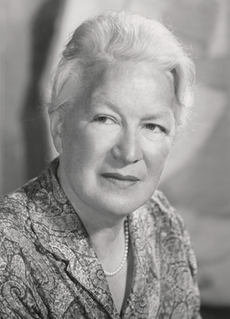A Quote by Joseph Conrad
A historian may be an artist too, and a novelist is a historian, the preserver, the keeper, the expounder, of human experience.
Quote Topics
Related Quotes
The only excuse for a novelist, aside from the entertainment and vicarious living his books give the people who read them, is as a sort of second-class historian of the age he lives in. The "reality" he missed by writing about imaginary people, he gains by being able to build a reality more nearly out of his own factual experience than a plain historian or biographer can.
Contemporary art is based on that an artist is supposed to go into art history in the same way as an art historian. When the artist produces something he or she relates to it with the eye of an art historian/critic. I have the feeling that when I am working it is more like working with soap opera or glamour. It is emotional and not art criticism or history of art.
The selective winnowing of time leaves only a few recognizable individuals behind for the historian to light on. Thus the historian who finds the human being more interesting than what the human being has done must inevitably endow the comparatively few individuals he can identify with too great an importance in relation to their time. Even so, I prefer this overestimate to the opposite method which treats developments as though they were the massive anonymous waves of an unhuman sea or pulverizes the fallible surviving records of human life into the grey dust of statistics.
If you have things or are involved with things that turn on, it's going to have code. And there are so many people - let's pick on the historians - even as a historian, let's say I ended up going the road of being a historian, just knowing some basic scripts, any kind of automation would have made me a 10 times better historian because I wouldn't have to sit there changing every file name to "1234" and then "12345." It can have a transformative value.






































